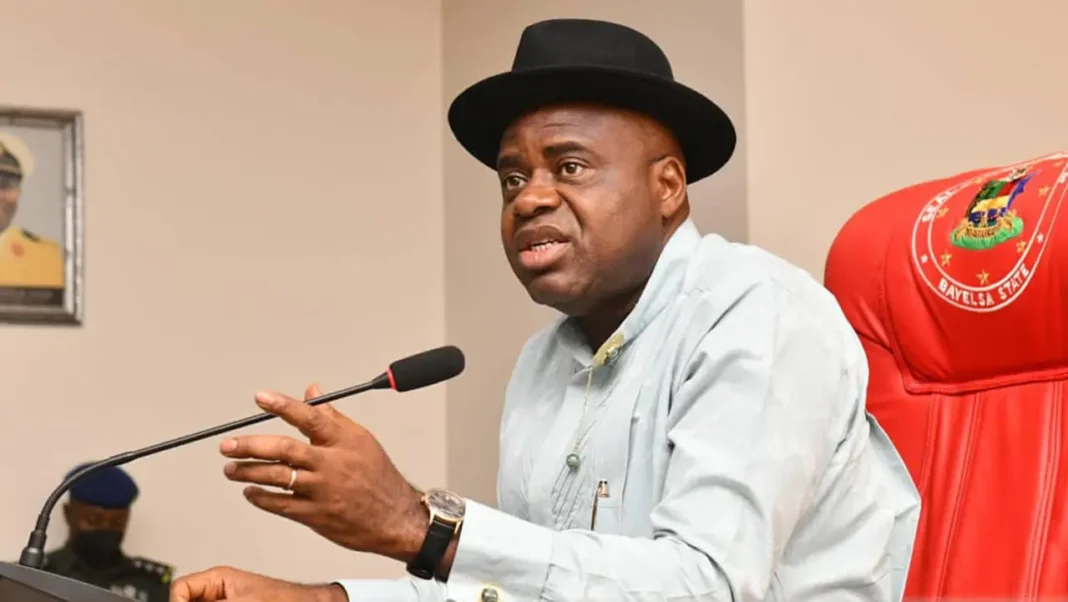Bayelsa State Governor Douye Diri has formally defected from the Peoples Democratic Party (PDP) to the All Progressives Congress (APC), marking one of the most significant political realignments in the Niger Delta in recent years. The defection was announced on Wednesday at a press conference held in Yenagoa, the state capital, where Diri declared that his move was motivated by a desire to align governance in Bayelsa with federal structures and enhance development prospects.
Accompanying him to the new party were several prominent state officials, including his deputy, executive council members, and senior political figures. They were seen wearing APC colors and publicly expressing confidence that the switch would deliver stronger synergy with the presidency and federal agencies. A large crowd of supporters was present, waving party flags and chanting slogans, creating a public spectacle befitting the political weight of the move.
Diri’s defection follows a string of earlier high-profile switches to the APC in other states, reinforcing the party’s growth narrative. In recent months, APC has enjoyed gains in both legislative and executive arms, securing defections of governors and state assembly members, especially in regions formerly dominated by opposition parties. The party has underscored these gains as evidence of its expanding footprint and appeal across Nigeria’s geopolitical zones.
In Bayelsa, the defection is expected to shift the political landscape significantly. The state has long been a PDP stronghold in the South-South region, often serving as anchor territory in Niger Delta politics. With Diri’s exit, the balance of power may tilt, and rival parties will need to reassess candidate strategies, alliances, and grassroots influence. Some observers suggest this also gives APC a stronger negotiating position in the oil-rich region and enhances its visibility among local constituencies.
PDP national leadership is expected to respond with countermeasures, including efforts to reclaim Bayelsa through electoral mobilisation, reconsolidation of party structures, and appeals to defectors to return. The PDP’s reaction will be watched closely, especially in how rapidly it can stem further erosion in stronghold states.
At the national level, Diri’s defection adds strength to APC’s efforts to present itself as a truly cross-regional party. It may influence strategic calculations ahead of elections, particularly in legislative contests and senatorial districts within the Niger Delta. The acquisition of Bayelsa’s governor strengthens APC’s hand in dialogues on federal resource allocation, security arrangements and infrastructural promises to the region.
As the dust settles, eyes in Bayelsa and across Nigeria will watch how the defection reshapes local politics. Will Diri consolidate his new base or find resistance from within? Will PDP bounce back stronger or slip further in the Delta? The answers will have implications not just for Bayelsa, but for partner states and national power dynamics.
Samuel Aina

